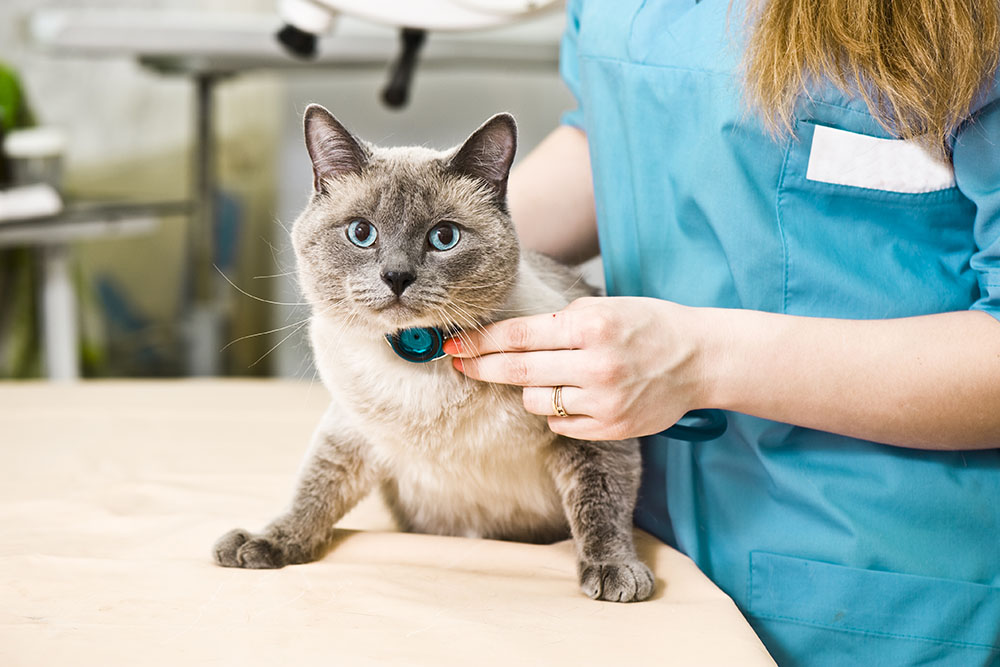Don’t Wait Until It’s Too Late: Protecting Pets From Preventable Diseases
At Cane Bay Veterinary Clinic, we believe that effective prevention is the foundation of long-term health. From routine vaccinations to nutrition and early disease screening, taking proactive steps today can help your pet avoid many of the most common and costly health issues tomorrow.
This guide outlines the diseases most often prevented through consistent veterinary care, and offers practical strategies to help you protect your dog or cat at every life stage.
What Are Preventable Pet Diseases?
Preventable diseases are illnesses that can be significantly reduced—or even completely avoided—through routine care, vaccinations, and lifestyle adjustments. These include:
- Viral infections (like rabies or distemper)
- Parasitic diseases (heartworm, fleas, ticks, intestinal worms)
- Chronic conditions influenced by diet, dental care, or weight
- Toxin-related emergencies that stem from household exposures
By taking proactive steps now, you can help your pet avoid serious illness and reduce the risk of costly emergency treatments later.
Vaccines: The Foundation of Preventative Health
Vaccinations prepare your pet’s immune system to recognize and fight off dangerous diseases before they cause harm. They’re safe, effective, and essential for both individual and public health.
Core vs. Non-Core Vaccines: What’s the Difference?
Core vaccines are recommended for all pets due to the high risk and severity of the diseases they protect against:
- Dogs: Rabies, Canine Distemper, Parvovirus, Adenovirus (DHPP)
- Cats: Rabies, Feline Viral Rhinotracheitis, Calicivirus, Panleukopenia (FVRCP)
Non-core vaccines are administered based on your pet’s lifestyle, environment, and exposure risk. These include:
- Bordetella (Kennel Cough)
- Leptospirosis (often transmitted through standing water)
- Feline Leukemia Virus (FeLV) for outdoor cats or multi-cat households
- Lyme Disease, particularly in tick-prone regions
Our team at Cane Bay Veterinary Clinic will help tailor a personalized vaccine schedule. For more detail, review the Canine Preventive Guidelines from the AVMA.
Parasite Prevention: Beyond the Basics
Parasite control is another cornerstone of preventive care. Left unchecked, parasites can cause discomfort, disease, and even death. Fortunately, most are easily preventable with monthly medications and routine monitoring.
Internal Parasites
Heartworms and intestinal parasites like roundworms, hookworms, and giardia are surprisingly common. They can be transmitted by mosquitoes, soil, or even from other animals.
- Heartworm prevention is crucial, even for indoor pets.
- Routine fecal exams help detect and treat internal parasites early.
Learn more about year-round parasite prevention.
External Parasites
Fleas and ticks aren’t just annoying—they can transmit serious diseases like Lyme disease and cause painful allergic reactions such as flea allergy dermatitis.
- Use monthly oral or topical medications
- Check for ticks after outdoor activities
- Follow CDC guidelines for tick prevention
Dental Care: An Overlooked but Critical Factor
Dental disease affects most pets by the time they’re three years old. It can lead to chronic pain, tooth loss, and even impact the heart and kidneys.
Preventative dental care includes:
- Daily tooth brushing
- Dental chews or rinses
- Professional cleanings under anesthesia as needed
Good oral hygiene improves both quality of life and long-term health.
Nutrition & Weight Management: Building Daily Wellness
A nutritious diet is one of the easiest ways to prevent disease. Obesity is a top contributor to chronic conditions like diabetes, arthritis, and cardiovascular issues.
Here’s how you can help:
- Feed a balanced diet suited to your pet’s life stage and breed
- Use measured portions—not free feeding
- Limit high-calorie treats and avoid table scraps
- Monitor weight gain and energy levels over time
The Pet Obesity Prevention site is a great resource to help evaluate your pet’s body condition.
Environmental Safety: Preventing Toxin Exposure
Your home can contain hidden risks to pets, such as:
- Human medications (especially NSAIDs and antidepressants)
- Cleaning agents
- Foods like chocolate, grapes, onions, and xylitol-containing products
Pet-proofing your space is an easy step to avoid emergency situations. Visit Preventing Pet Emergencies for a checklist.
The Value of Regular Veterinary Visits
Routine exams are the glue that holds your pet’s health plan together. At each check-up, we assess:
- Weight, body condition, and vital signs
- Dental and skin health
- Behavioral or mobility changes
- Bloodwork and diagnostic tests to catch hidden illness early
Learn more about blood work and early detection
We recommend annual wellness visits—or semi-annual for senior pets or those with chronic conditions.
Frequently Asked Questions
How often should my pet be vaccinated?
This depends on their age, risk factors, and previous vaccine history. Many core vaccines require annual or triennial boosters. We’ll customize the plan.
What are signs of parasite infections?
Symptoms include visible worms in stool, bloating, weight loss, itchy skin, scooting, or signs of anemia.
Are vaccines and preventatives safe?
Yes. Most pets tolerate them extremely well. Side effects are typically mild and temporary. The protection they provide far outweighs the minimal risk.
Preparing for Your Appointment
To help us provide the best care, please bring:
- A list of current medications and supplements
- Notes on your pet’s diet, routines, and any changes in behavior
- A fecal sample for parasite screening
- Any questions or concerns you have—we’re here to help
Need a checklist or want to track symptoms at home? Just ask—our team can provide tools to simplify the process.
We’re Here for You and Your Pet
At Cane Bay Veterinary Clinic, we’re committed to being your partner in preventive care. Whether it’s vaccines, parasite protection, nutrition advice, or just peace of mind, our team is here to guide you with compassion and expertise.
To schedule your pet’s next wellness visit or learn more about how we can support your pet’s long-term health, contact us today. We look forward to helping your pet live a longer, healthier, happier life.








Leave A Comment